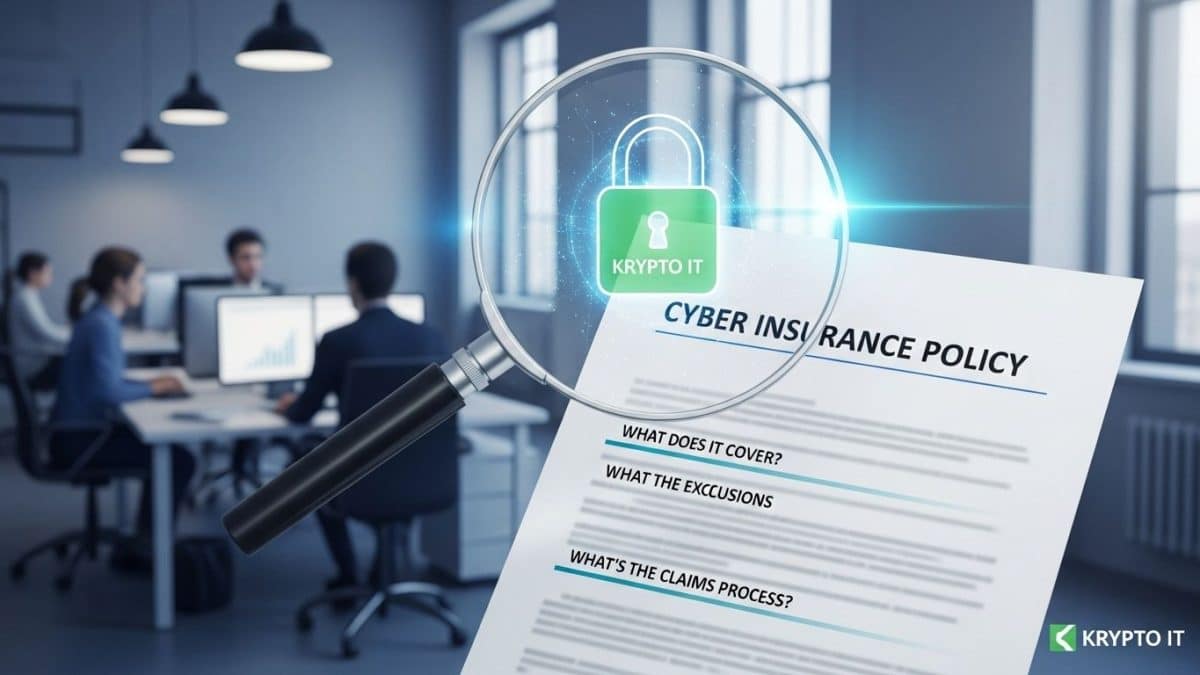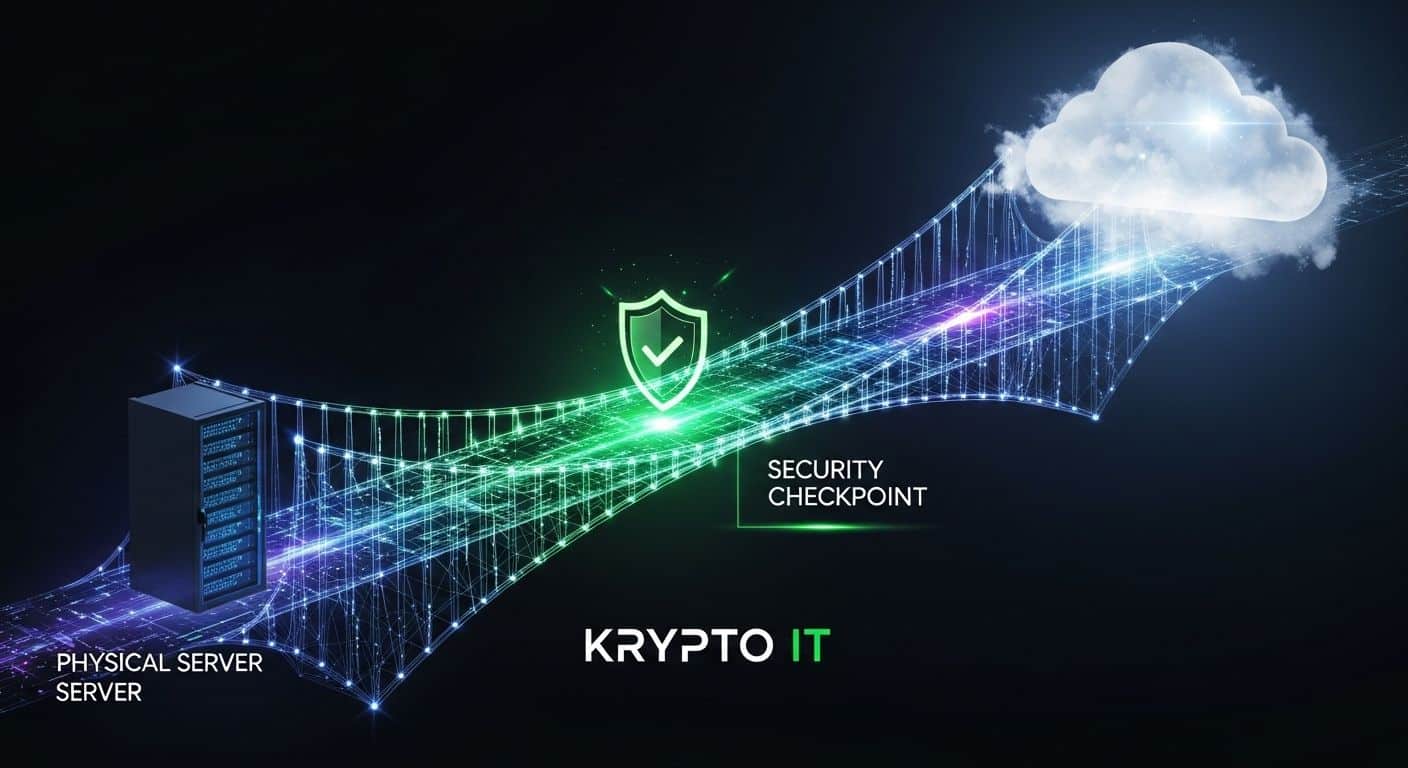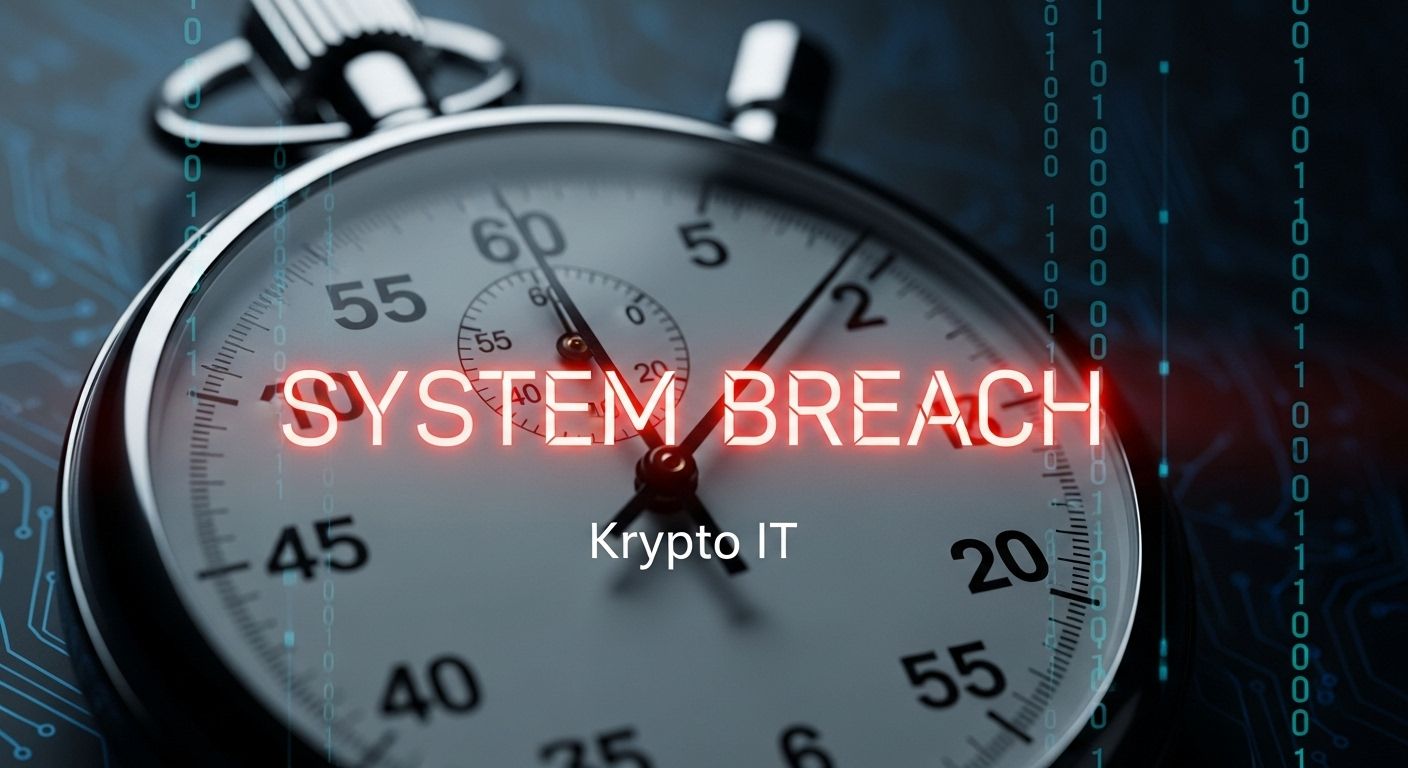
Beyond the Breach: The Hidden Financial Impact of a Cyberattack
October 1, 2025
Your MSP is Your Best Partner in Compliance: A Simple Guide
October 4, 2025You’ve invested in firewalls, backup systems, and employee training—you’re being proactive. But in today’s risk landscape, many SMBs are also turning to cyber insurance as an essential financial safety net. As the cost of a data breach climbs, especially here in dynamic markets like Houston, insurance seems like the natural next step.
However, cyber insurance is not like auto or property insurance. The policies are complex, the language is dense, and coverage often hinges on security practices you may not even realize are required. Krypto IT has seen too many SMBs discover the gaps in their policy only after an attack.
This post isn’t about whether you need cyber insurance (you likely do). It’s about ensuring your policy actually protects you when disaster strikes. Here are the critical questions every SMB owner must ask their provider before signing on the dotted line.
1. What Are the Non-Negotiable Security Requirements?
Before any incident happens, your insurer is checking your baseline security. Unlike general liability, cyber policies often require you to maintain specific security standards. If you fail to meet these, they can deny your claim.
Key Questions to Ask:
- Is Multi-Factor Authentication (MFA) mandatory for all remote access and email? Many policies will flat-out deny claims related to compromised passwords if MFA was not fully implemented across the organization.
- What are the specific backup requirements? They may require you to adhere to the 3-2-1 backup rule (3 copies of data, 2 different media types, 1 copy off-site) or mandate that the backup is completely air-gapped from the network.
- Is employee security training a prerequisite? If your team hasn’t completed recent, documented training, a successful phishing attack resulting in a claim might be dismissed due to “failure to maintain due care.”
2. Does My Policy Cover My Biggest Threats (Ransomware and Fraud)?
The core reason most SMBs buy cyber insurance is fear of ransomware and financial fraud. You need absolute clarity on how these specific, common threats are covered.
Key Questions to Ask:
- Does the policy cover ransom payments and negotiation fees? While no one wants to pay a ransom, having coverage for the payment and the costs associated with negotiating the lowest price is critical for business continuity.
- Is Social Engineering/Wire Transfer Fraud included? Many policies exclude losses stemming from voluntary transfers (like a CEO being tricked into wiring money). This is often listed under a “crime” rider, not the standard cyber policy. Ensure you know if this is covered and what the limits are.
- What is the coverage limit for Business Interruption? A claim isn’t just about data recovery; it’s about the lost revenue while your business is down. Confirm the policy covers this, and for how long.
3. Who Controls the Incident Response Process?
A breach is a chaotic, time-sensitive event. Your policy needs to dictate a clear, fast process, and you need to know who is in charge of crucial decisions.
Key Questions to Ask:
- Can I use my existing, trusted IT partner (like Krypto IT)? Insurers often have a pre-approved panel of forensic IT teams and legal counsel. Using an unauthorized vendor can void your claim. Ideally, you want a policy that allows your established IT partner to work with the insurer’s team for faster recovery.
- Is there a deductible on the initial response costs? Some policies require you to meet your deductible before the costs of forensic analysis or legal advice are covered. You need to know your out-of-pocket exposure from minute one.
- What is the notification timeline? How quickly must you report the incident to the insurer for the claim to be valid? Delays of even 24-48 hours can sometimes be grounds for rejection.
4. How Does Cyber Insurance Work with Managed IT Services?
Cyber insurance is a financial tool, not a technical defense tool. It pays for recovery, but it won’t prevent the attack. This is where your partnership with a professional IT provider becomes vital.
At Krypto IT, we see our role as complementary to your policy. We ensure your security baseline meets and exceeds the insurer’s requirements, proving that you have maintained “due care.” A strong Managed IT Service provider will:
- Verify Requirements: Document and verify that MFA, endpoint protection, and backup solutions are correctly configured as mandated by your policy.
- Reduce Premiums: By demonstrating a higher security posture (like advanced threat detection and regular patching), we can often help you secure better policy terms and lower premiums.
- Facilitate Response: If an incident occurs, we can immediately provide detailed network data and logs to the forensic teams, significantly accelerating the claims and recovery process.
Don’t treat cyber insurance as a “set it and forget it” solution. Use it as a powerful component of a comprehensive strategy that is constantly managed and validated by experts.
Ready to ensure your security posture aligns perfectly with your cyber insurance policy? Contact Krypto IT today for a complimentary security review.




